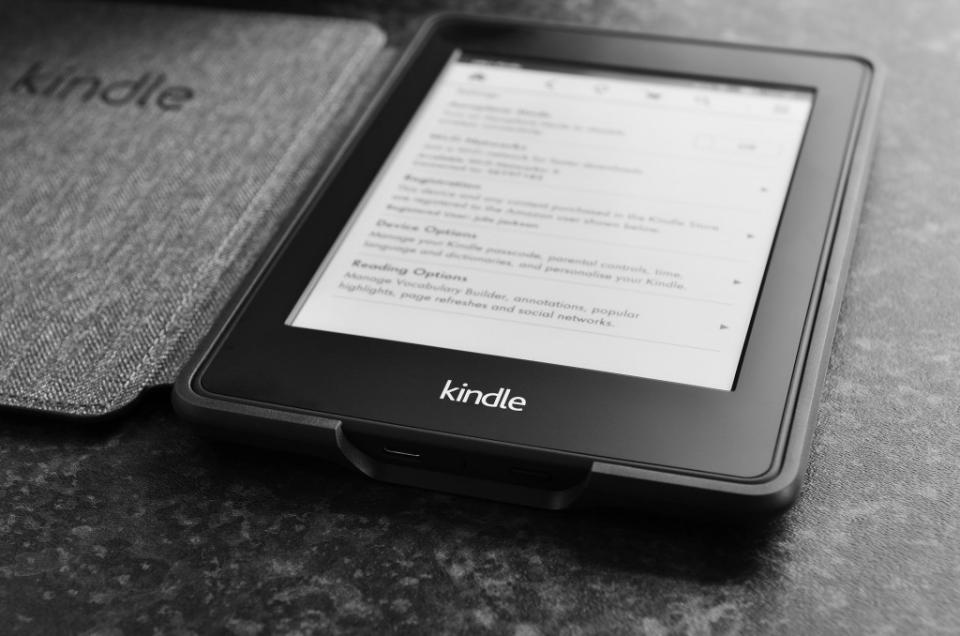Business Excellence Lessons From Amazon CEO Jeff Bezos
How many tech companies are able to survive a stock price plunge from above US$85 to below US$6, all over the span of just two years because of the dot com bust? Well, the online megastore Amazon survived that. Today, Amazon’s stock price is almost ten times (US$830~) its peak of US$85 16 years ago.
The man behind Amazon this article will be looking at is Jeff Bezos, someone who can be considered as one of the founding fathers of online shopping, specifically in the books industry. The business excellence we can learn from Bezos is immense, be it for entrepreneurs, business analysts, and even investors.
Click here to read our previous article about Starbucks CEO Howard Schultz.
Intended to build only an online bookstore
Bezos’s vision of starting Amazon, or Cadabra (as in Abracadabra) when it was first founded back in 1994, was to make books more readily available to everyone who wants to read. The overarching idea was to sell books online, shipping to reading enthusiasts all over the world.
Then he decided to sell music as well, and videos, and many other forms of media that were sold differently back then. And they all worked out pretty well for Amazon, albeit not as successful as its book-selling business but still pretty substantial.
To Bezos, everything was about the customer. So he surveyed his shoppers about what else did they want Amazon to sell. They wanted a whole bunch of things, and Bezos pointed out a request that stood out to him – windshield wipers for cars. Amazon then went on to sell a whole range of other things.
The customers are everything

Although nowadays, not many of us (especially in Asian countries) would buy from Amazon and instead opt for Qoo10, Alibaba Express, Taobao, etc. but Amazon has almost always been ranked at the top in terms of customer satisfaction.
When pioneering new ideas and products, Bezos and his senior executives always look for customer obsession. It’s always about the customers – they are the ones paying, using and reviewing the products.
On another front, Bezos’s direction for Amazon is to work backwards – identify the customers’ needs and fill in the gaps in skills requirement of the company’s teams.
Kindle, arguably one of the groundbreaking inventions to popularise eBooks alongside big players like Apple and iBooks, is a perfect example, says Bezos. It started off with a customer need – reading cheaper books more conveniently – which then translated to Amazon’s investment in a team to develop Kindle.
Employees are equally important
Bezos is commonly criticised for not offering free massage services and free food for his employees, comparing Amazon with the likes of Google and other huge tech companies. He turned it around and joked: the best advice you can give to your niece or nephew is to pick a job where they give free massages, they will be led in the right direction for the rest of their career.
The Amazon leader’s way of compensating employees is very different from other companies. The wages are relatively low but employees are given Amazon stocks. This is to instill long-term perspectives in the employees.
Bezos believes stock compensations would also give the employees an “owner” mindset instead of a “tenant” one. To illustrate this idea, he uses the example of rental cars – car borrowers seldom or almost never washes them.
But when people owns something, they tend to feel more connected and there is a higher chance of going that extra mile because their own interests are at stake too.
Encourage employees to make bold bets

You might think that the CEO of a multi-billion dollar tech company would be risk-averse to be able to prevent his empire from collapsing. But Bezos is the exact opposite – he encourages people to make bold bets, fail, rinse and repeat. To him, that’s the way the company can grow.
A few big successes are able to compensate for the dozens or even hundreds of failures in the business’s life span. In fact, to build the US$390 billion Amazon it is today, Bezos had to lose literally billions of dollars by investing in bold bets.
Bold bets are experiments and we all know that experiments are very prone to failure, that’s precisely why they are called “experiments”. But like many great inventions in history, numerous bold bets were made to achieve the success that is the invention itself.
Benjamin Graham once said…
“In the short-term, the stock market is a voting machine. In the long-term, it’s a weighing machine.”
Bold bets might lead to stock price plunges. But as long as those bold bets do not cost the entire business, those experiments would result in creating more mass for the company in the long-term.
*Key points from this article are taken from Jeff Bezos’s interview with Business Insider.

 Yahoo Finance
Yahoo Finance 
